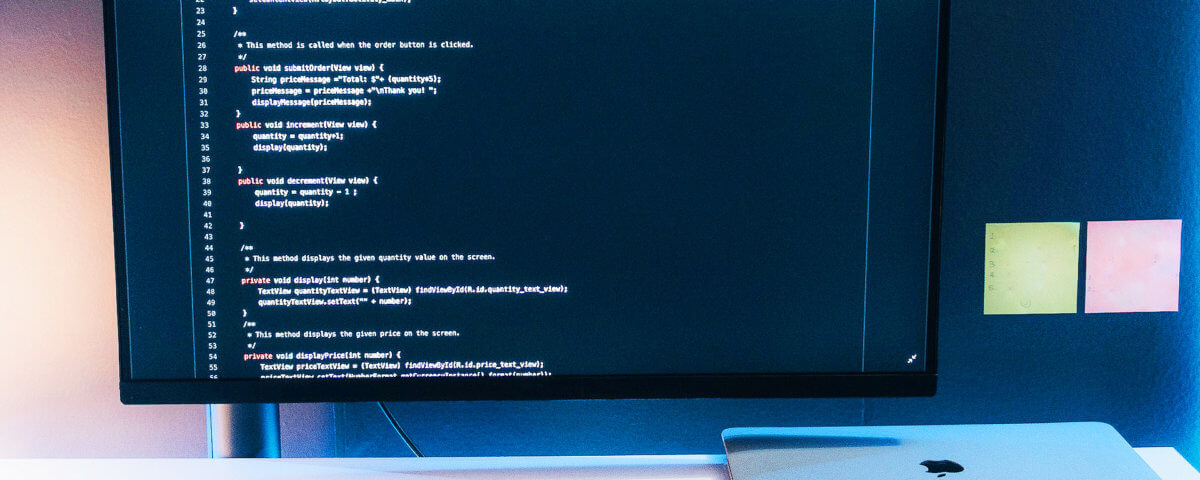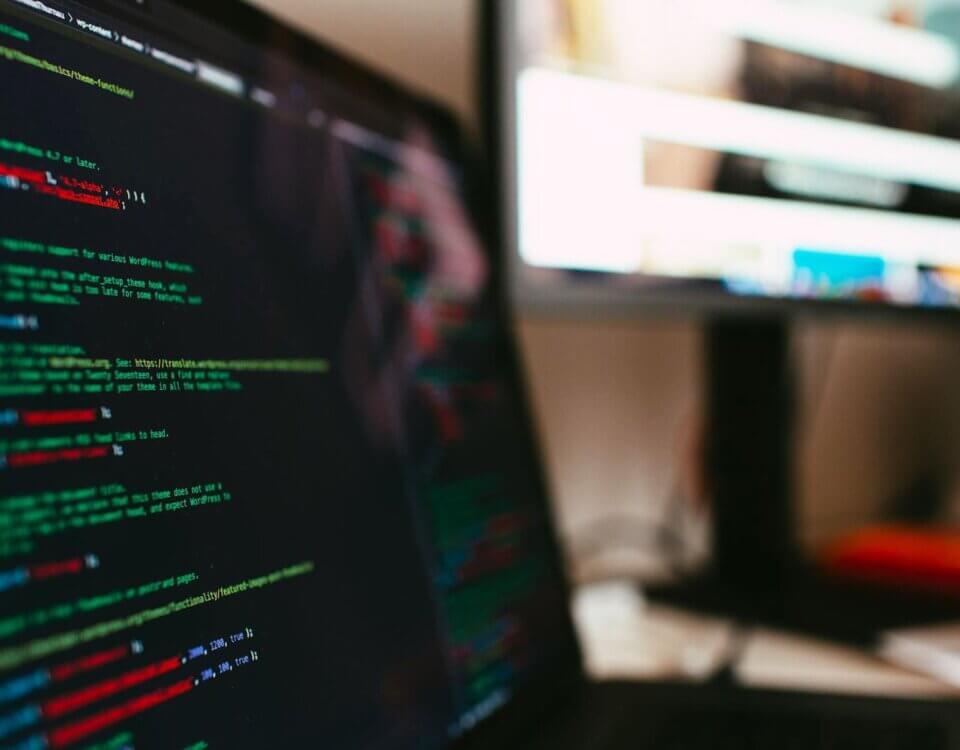
Hello, Laravel 10: An Overview Of The Framework’s 2023 Release
March 27, 2023
How To Use ChatGPT To Make Yourself A Better Developer
April 10, 2023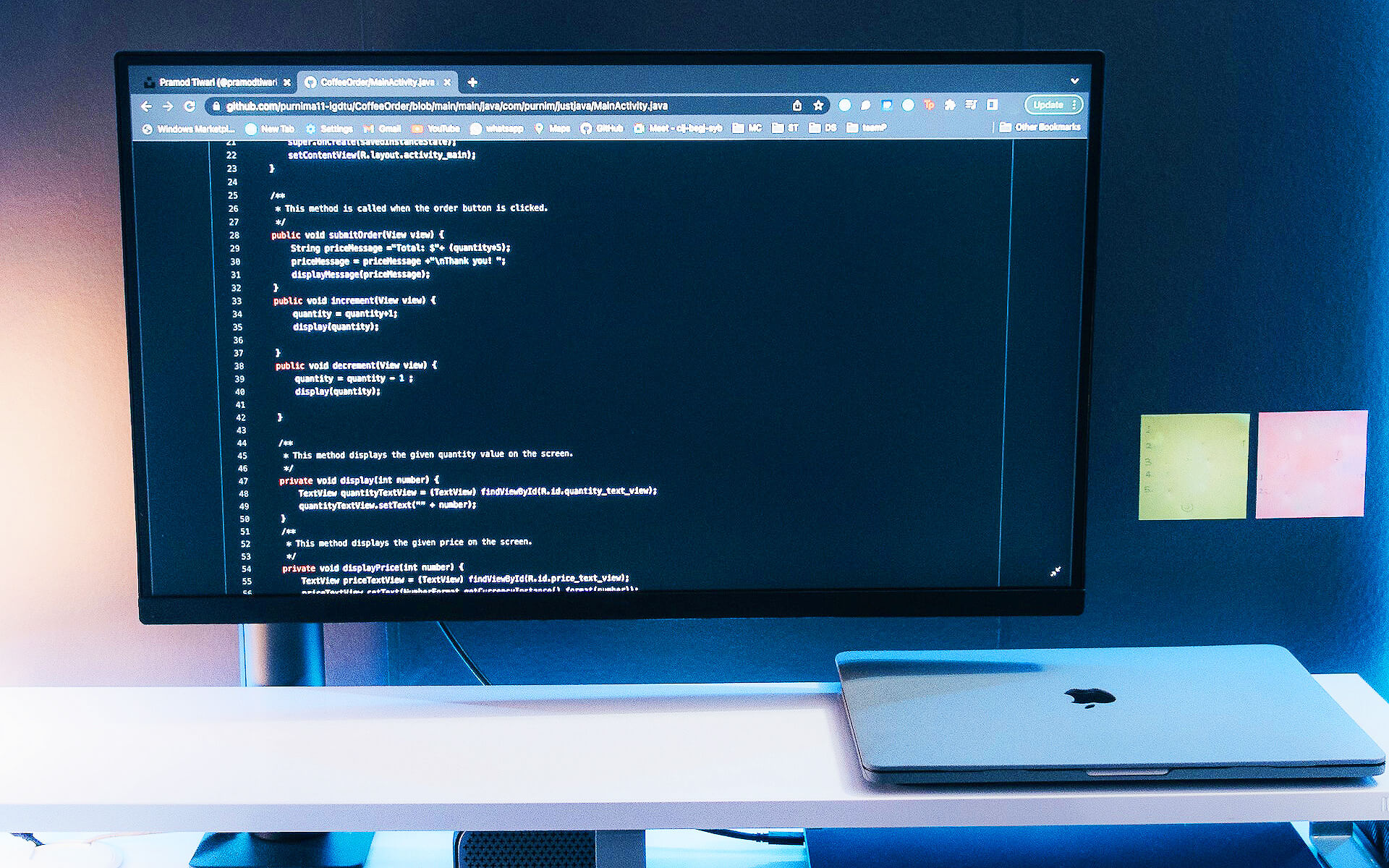
In the world of software development, writing clean code is more than just a best practice - it's an art form. Clean code is elegant, efficient, and easy to read, and it can make all the difference when it comes to maintaining and scaling a project over time. In this article, we'll explore the beauty of writing clean code and why going back to refactor and optimize your code is essential.
What is Clean Code?
Clean code refers to code that is easy to read, maintain, and understand. Clean code is characterized by clear and concise naming conventions, consistent formatting, and a logical structure that makes it easy to follow. Clean code is not only aesthetically pleasing, but it also makes it easier for other developers to understand and modify the code as needed.
Why Write Clean Code?
Writing clean code has a number of benefits, both in the short term and the long term. In the short term, clean code can help you catch errors and bugs more quickly, as well as make it easier to troubleshoot issues when they do arise. It can also make it easier to collaborate with other developers, as clean code is more accessible and easier to understand.
In the long term, writing clean code can save you time and money. When code is clean and well-organized, it's easier to maintain and scale, which means you'll spend less time fixing bugs and more time adding new features. Clean code can also help you avoid technical debt, which is the accumulation of technical problems that make it harder to maintain and update a project over time.
Refactoring: The Key to Clean Code
While writing clean code is important, it's not always possible to get it right the first time around. That's where refactoring comes in. Refactoring is the process of revising and improving existing code without changing its external behavior. Refactoring is an essential practice for maintaining clean code over time, as it allows you to optimize and improve your code as needed.
There are many reasons why you might need to refactor code. Perhaps you've identified a performance issue that needs to be addressed, or maybe you've realized that a particular function or class could be better organized. Whatever the reason, refactoring allows you to make changes to your code without introducing new bugs or breaking existing functionality.
The Benefits of Refactoring
Refactoring has a number of benefits beyond just improving the cleanliness of your code. Here are just a few of the reasons why refactoring is so essential:
- Improved Performance: Refactoring can help you identify and address performance issues that might be slowing down your code. By optimizing your code, you can make it run faster and more efficiently.
- Better Scalability: Refactoring can make your code more modular and easier to scale. This can be particularly important for projects that are expected to grow and evolve over time.
- Increased Maintainability: Refactoring can make your code easier to maintain, which means you'll spend less time fixing bugs and more time adding new features.
- Enhanced Collaboration: Refactoring can make it easier for other developers to work with your code. By making your code more accessible and easier to understand, you can improve collaboration and teamwork.
Here are three examples of clean, optimized, and refactored code in C#:
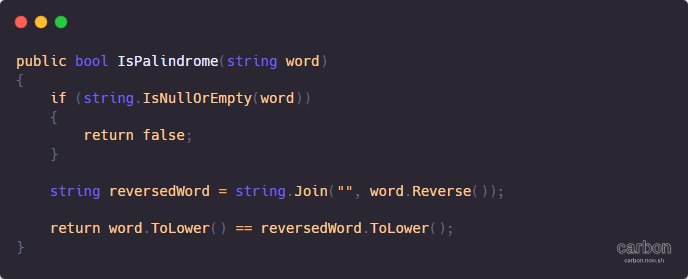
This code is clean because it uses clear and concise naming conventions, consistent formatting, and a logical structure that makes it easy to read and understand. It also handles edge cases (such as empty or null input) gracefully.
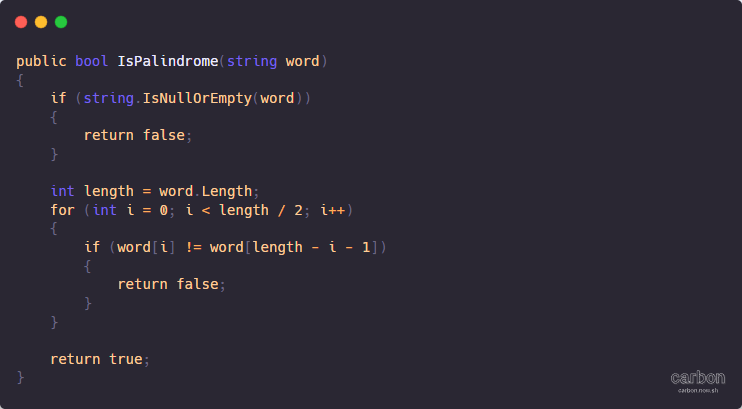
This code is optimized because it uses a more efficient algorithm to determine whether a word is a palindrome. Instead of creating a new string to reverse the input, it uses a for loop to compare the first half of the input to the second half. This results in faster performance, particularly for longer input strings.

In this example, we have refactored the code to use a more functional approach. We have also added some additional functionality to clean the input string by removing any non-alphanumeric characters and converting it to lowercase. This improves the readability and maintainability of the code.
Conclusion
In the end, writing clean code is about more than just aesthetics - it's about creating code that is efficient, scalable, and easy to maintain. Refactoring is an essential part of this process, as it allows you to optimize and improve your code over time. By prioritizing clean code and refactoring regularly, you can create projects that are more resilient, more efficient, and more enjoyable to work on.




